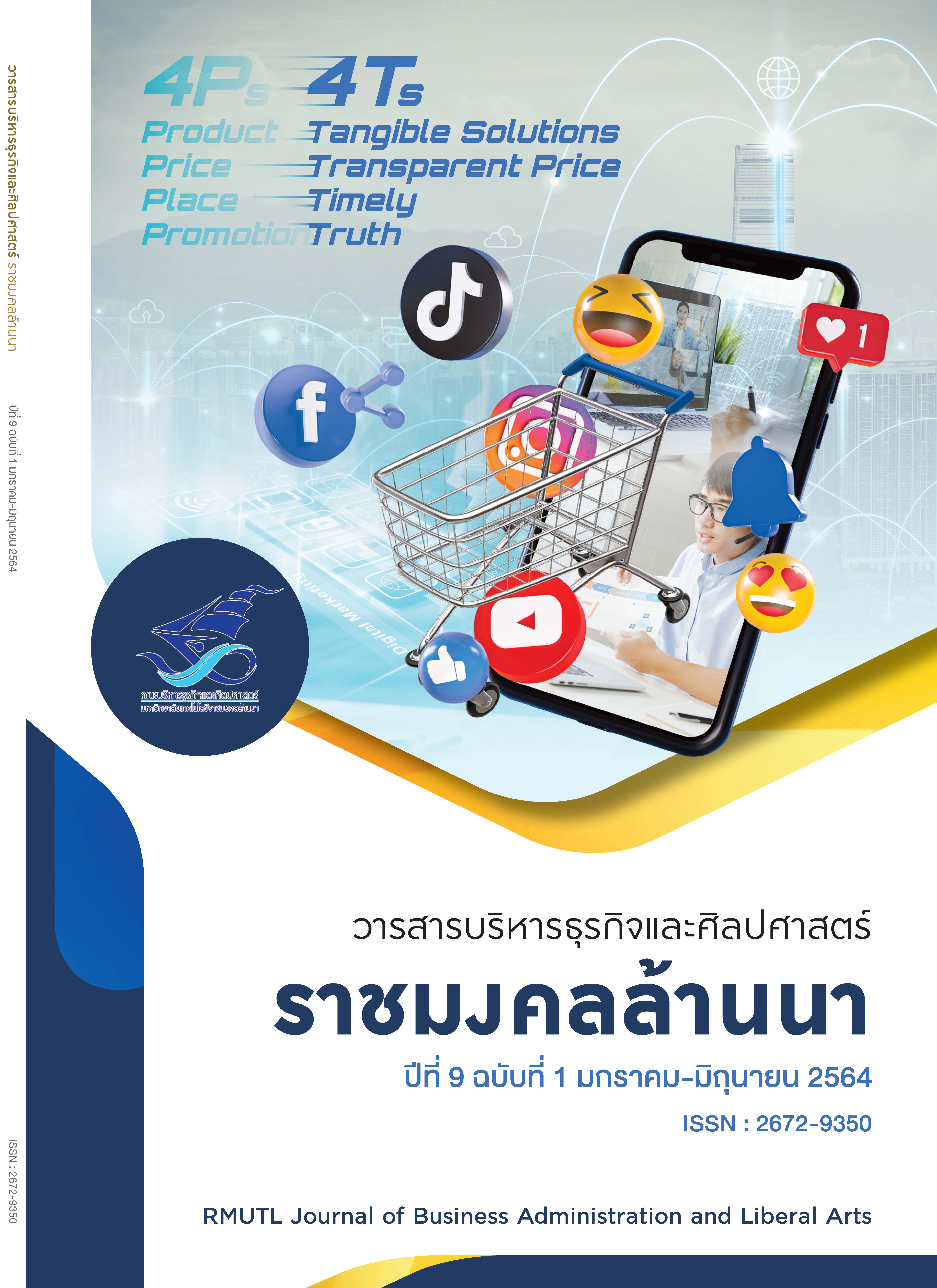Context and Factors Affecting the Process of Preparing Teachers for Multicultural Classrooms
Main Article Content
Abstract
This scholarly article wants to present the context and factors affecting the process of preparing teachers into multicultural classrooms in four multicultural schools in Chiang Mai in semester 1–2 of academic year 2019. The samples were four students on teaching internship and the data collection methods consisted of observations and interviews. To present contextual information and factors affecting the process of preparing teachers into multicultural classrooms, the authors see teachers as people who have a vision of diversity in the classroom and have a positive attitude and awareness of the importance and acceptance of diversity in the classroom, as well as the skills to integrate teaching in diverse classrooms. It starts with students practicing their professional experience. This is what leads to an understanding of the importance and goals of education management in accordance with the multicultural approach, a concept that begins with the importance of all learners to provide a learning experience that is characteristic of educational equality, allowing learners to develop themselves in the best possible way.
Article Details
บทความวิจัยนี้เป็นของลิขสิทธิ์
References
กิตติวินท์ เดชชวนากร. (2563). การตีตราทางเพศที่เกิดกับนักเรียนข้ามเพศในเชียงใหม่. ปรัชญาดุษฎีบัณฑิต สาขาวิชาการศึกษา (พหุวัฒนธรรมศึกษา) บัณฑิตวิทยาลัย มหาวิทยาลัยเชียงใหม่.
จำปาสีส้ม. (2557). “ไม่เข้าใจว่าทำไมคนไทยบางคนชอบดูถูกชาวเขากันนัก ทั้ง ๆ ที่ชาวเขาหลายคนก็ไม่ได้ด้อยกว่าเขาเลย”. จาก https://www.pantip.com/
ชัชวาลย์ ทองดีเลิศ. (2560). ทางเลือกในการศึกษา. เชียงใหม่: สยามพิมพ์นานา.
ซูรียาตี อัศศอลีฮีน. (2553). ผลของการใช้บทเรียนโมดูลเรื่อง ศาสนา ตามแนวคิดพหุวัฒนธรรมศึกษาที่มีต่อผลสัมฤทธิ์ทางการเรียนของนักเรียนชั้นประถมศึกษาปีที่ 5. บัณฑิตวิทยาลัย มหาวิทยาลัยอิสลามยะลา.
บุปผา อนันต์สุชาติกุล. (2554). โครงการรูปแบบและการจัดการศึกษาสำหรับทายาทรุ่นที่สองของผู้ย้ายถิ่นจากประเทศพม่า: รายงานวิจัยฉบับสมบูรณ์. กรุงเทพฯ: สำนักงานกองทุนสนับสนุนการวิจัย.
ประสิทธิ์ ลีปรีชา และมุกดาวรรณ ศักดิ์บุญ. (2559). นโยบายและการจัดการศึกษาของรัฐต่อชนเผ่าพื้นเมืองในภาคเหนือของประเทศไทย. เชียงใหม่: ภาควิชาสังคมศาสตร์กับการพัฒนา คณะสังคมศาสตร์ มหาวิทยาลัยเชียงใหม่.
สมโชติ อ๋องสกุล. (2548). วิชาชีพครูในสังคมไทย: มิติทางประวัติศาสตร์. เชียงใหม่: ภาควิชาพื้นฐานการศึกษา มหาวิทยาลัยเชียงใหม่.
เสาวลักษณ์ เรืองศรี. (2563). ปฏิบัติการสร้างครูสู่ห้องเรียนพหุวัฒนธรรม. ปรัชญาดุษฎีบัณฑิต สาขาวิชาการศึกษา (พหุวัฒนธรรมศึกษา) บัณฑิตวิทยาลัย มหาวิทยาลัยเชียงใหม่.
อธิปัตย์ คลี่สุนทร. (2555). ยุทธศาสตร์การบริหารยุคโลกาภิวัตน์. การบริหารการศึกษาศิลปากร, 2(3): 36.
อัครพงษ์ สัจจะวานิช. (2546). ปรัชญาการศึกษาแบบผู้เรียนเป็นศูนย์กลาง. กรุงเทพฯ: ข้าวฟ่าง.
Banks, J. A. (1973). Teaching Ethnic Studies: Concepts and Strategies. Washington DC: National Council for the Social Studies.
__________. (2004). Teaching for Social Justice, Diversity, and Citizenship in a Global World. In the Educational Forum 68, 4 (December): 296–305. Taylor & Francis Group.
Bennett, N. (2003). Effective Educational Leadership. London: The Open University Press.
Giroux, H. A. (1998). Literacy and the Pedagogy of Voice and Political Empowerment. Education Theory, 38(1).

